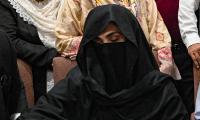Copenhagen: Europe remains "in the firm grip" of Covid and the death toll on the continent could top 2.2 million this winter if current trends continue, the World Health Organisation said on Tuesday. Some 700,000 could die in the coming months, the WHO said, as cases creep up across Europe, prompting some countries to reimpose tough restrictions.
The WHO expects "high or extreme stress in intensive care units (ICUs) in 49 out of 53 countries between now and March 1, 2022". "Cumulative reported deaths are projected to reach over 2.2 million by spring next year," it added, up from the current 1.5 million.
Covid-19 is the leading cause of death across Europe and Central Asia, the WHO reported, citing figures from the Institute for Health Metrics and Evaluation. The rise in Europe was being driven by a combination of the highly-contagious Delta variant, insufficient vaccination coverage and the easing of measures such as mask wearing and physical distancing, it said.
According to WHO data, Covid-related deaths increased last week to nearly 4,200 a day, doubling from 2,100 deaths a day at the end of September. The WHO also said evidence was growing that vaccine-induced protection against infection and mild disease was declining.
"The Covid-19 situation across Europe and Central Asia is very serious. We face a challenging winter ahead," regional director for WHO Europe, Hans Kluge, said in a statement. He called for a "vaccine plus" approach, consisting of vaccinations, social distancing, the use of face masks and hand washing.
The WHO said face masks reduce Covid incidence by 53 percent according to a recent study, and "over 160,000 deaths could be prevented (by March 1) if universal mask coverage of 95 percent was achieved".
Meanwhile, the Dutch police said on Tuesday they had arrested at least 21 people during a fourth night of unrest over coronavirus measures, although the situation had calmed down. Prime Minister Mark Rutte has slammed the days-long spree of "pure violence" by "idiots", and warned that more Covid restrictions are on the cards.
Small groups caused trouble in Zwolle, Groningen and Roosendaal on Monday night though not on the scale of violence that rocked major cities at the weekend. Police in the northern city of Zwolle arrested 13 people after declaring an emergency situation to prevent what they said were planned riots, local police said on Twitter.
The suspects were detained for offences including possession of fireworks, disobeying police orders and having no ID, broadcaster RTL said. Eight people were arrested in the southern town of Roosendaal, including three for setting fires, the ANP news agency said.
Police also intervened to break up gangs of youths in Groningen on Monday, a day after noisy protests in the northern city, RTL said. More than 150 people have now been arrested across the country during protests against coronavirus measures that came into force on November 13.
The violence started in the port city of Rotterdam on Friday when four people were shot after police opened fire during pitched battles with stone-throwing rioters. Demonstrators took to the streets of The Hague on Saturday, pelting police with fireworks and setting fire to bicycles. Five police were injured.
Rutte said on Monday he understood the "tension in society" as the pandemic drags on but "Iwill never accept that idiots use pure violence". His government has warned that further measures are likely if there is no sign of a fall in cases from the current restrictions, under which bars, cafes, restaurants and supermarkets close early and people are instructed to work from home.- In a related development, Chancellor Angela Merkel’s husband on Tuesday accused unvaccinated Germans of "laziness", as the country grapples with a dramatic rise in coronavirus infections that has fuelled debate about making jabs mandatory.
Germany’s Covid-19 resurgence has in part been blamed on its relatively low vaccination rate compared with other Western European nations like France, Italy or Spain, with just 68 percent of the population fully jabbed.
"It is astonishing that a third of the population does not follow scientific findings," Merkel’s husband, Joachim Sauer, said in an interview with Italian newspaper La Repubblica and picked up by German daily Die Welt. "In part, this is due to a certain laziness and complacency of Germans," said Sauer, who seldom speaks in public.
"The other group are people who follow a personal conviction, a kind of ideological reaction to what they consider a vaccination dictatorship," Sauer said, a cohort he said also included doctors and scientists. Like his famous wife, Sauer is a quantum chemist, and was in Italy on an academic visit.
Liberal Justice Elena Kagan on Sept. 13, 2016. — Slate website WASHINGTON: U.S. Supreme Court justices, wading back...
A representational image of inmates behind jail bars. — Unsplash/FileMOSCOW: A Russian court on Wednesday ordered...
Sudanese soldiers guard the surrounding area of the UNMIS compound in El-Fasher, the administrative capital of North...
US quietly shipped ATACMS missiles to Ukraine. — Report news agencyWASHINGTON: The United States in recent weeks...
US President Joe Biden during his address in California. — AFP FileWASHINGTON: President Joe Biden signed a...
The World Meteorological Organisation flag. — AFP FileGENEVA: Global temperatures hit record highs last year, and...







